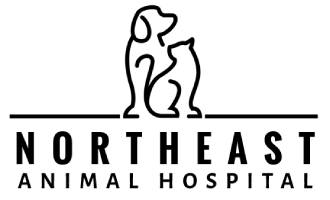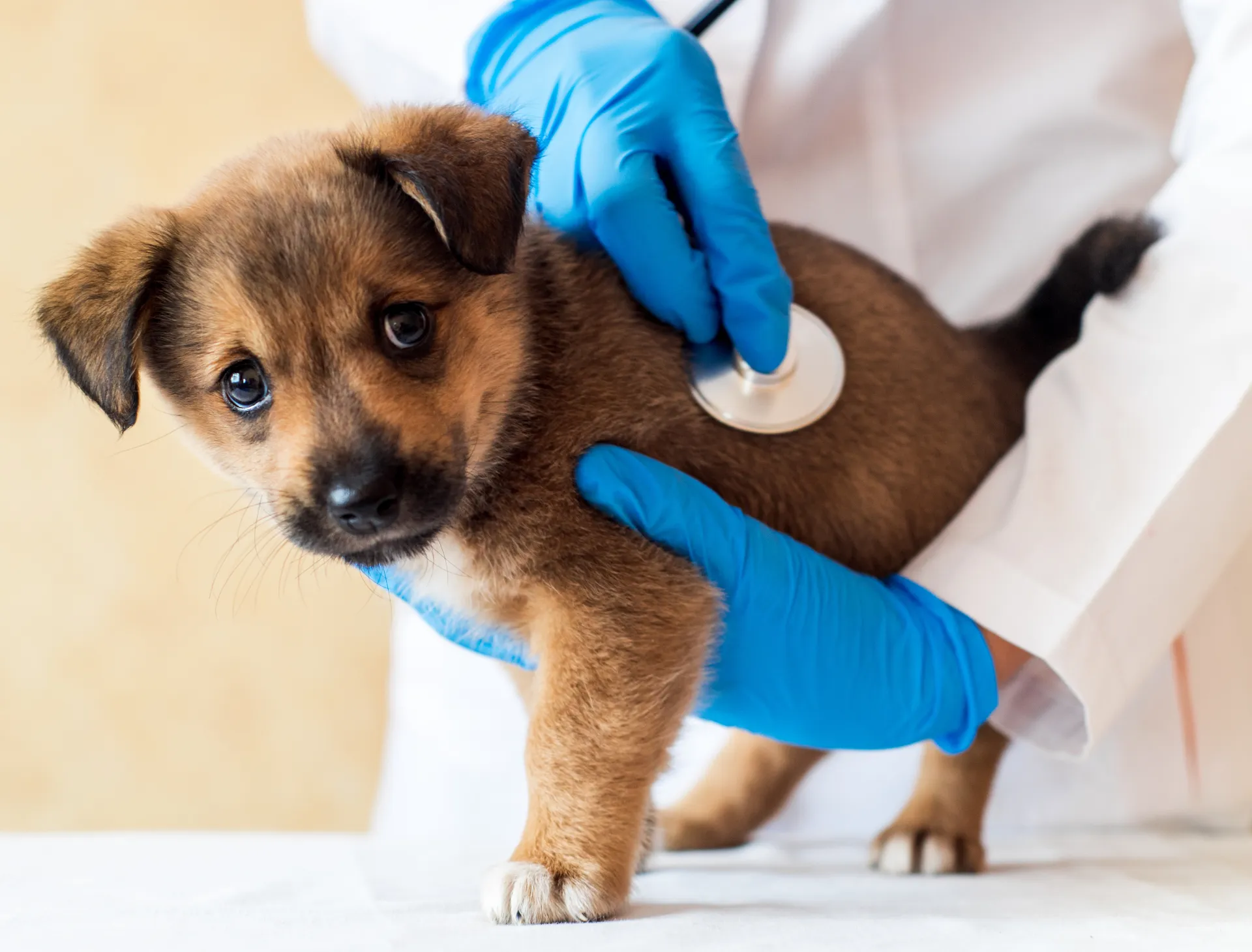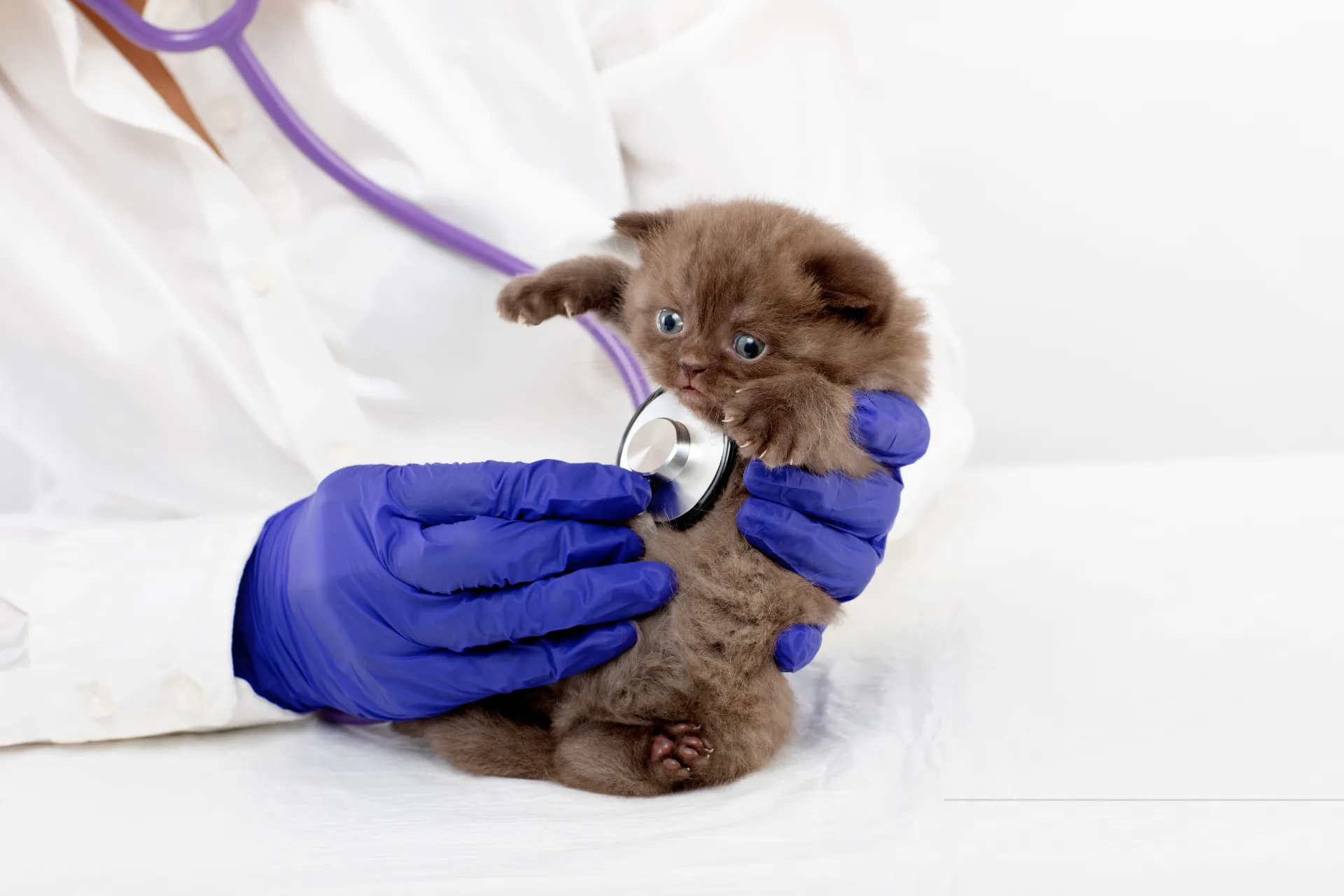Your Pet’s First Year
Same-Day & Emergency Services | Free Quotes | Customized Care for Each Pet
What to Expect During Your First Year of Pet Ownership
If you’re a new parent of a puppy or kitten, you’re sure to have some questions about their healthcare. At Northeast Animal Hospital, we offer a healthcare guide to help you get familiar with what to expect during your pet’s first year.
Contact us today or fill out our online form to request an appointment for veterinary or wellness services!
Puppy Healthcare Guide
- Week 5-6: The puppy receives its first vaccinations for distemper, hepatitis, parainfluenza, parvovirus, lepto (DHLPP). A parasite test, deworming if needed, and physical exam are also performed. We also discuss dietary needs.
- Week 9: The puppy receives its second DHLPP vaccination. A parasite test, deworming if needed, and physical exam are completed.
- Week 12: The third DHLPP vaccination and first round of Bordetella vaccine are provided, as well as a parasite test, deworming if needed, and physical exam. Heartworm and Flea Control may be started.
- Week 15: The final round of DHLPP, Rabies, and Second round of Bordetella vaccine is provided.
- Annual Visit: Dogs receive boosters for DHLPP, Rabies, Bordetella vaccines. A parasite test, heartworm test, and physical exam are provided.
- Months 5-15: Spaying or neutering is typically completed within this age range.
The normal temperature for dogs ranges from 99.5 (F) to 102.5 (F), with 101.5 (F) considered average. We encourage you to ask questions regarding your pet’s care, dietary needs, fleas and other parasite control. Call us at (601) 258-3007.
Kitten Healthcare Guide
- Week 4 – 6: The kitten receives its first vaccinations for panleukopenia, rhinotracheitis, calicivirus and chlamydia (3 in 1 or FVRCP). A parasite test, deworming if needed, and a physical exam are completed. We offer a FELV/FIV blood test at 6 weeks. If you are going to keep them an indoor/outdoor cat we recommend the FELV vaccine for the kitten that may be exposed to other cats.
- Week 9: The kitten receives its second 3-in-1 (FVRCP) vaccination, first feline leukemia vaccination (if wanted) , and parasite test, deworming if needed and physical exam.
- Week 12: The third 3-in-1 (FVRCP) vaccination,rabies vaccination, and second feline leukemia vaccination (if wanted) are provided. A parasite test, deworming if needed, and physical exam are completed. We also start discussing flea/tick prevention.
- Boosters: FVRCP (Panleukopenia, rhinotracheitis, calicivirus, chlamydia) and leukemia shots are provided yearly. The rabies shot is provided with kitten vaccines in one year, and then again every year unless stated otherwise wanting a three year rabies vaccine . A parasite test and physical exam is completed.
- Months 5-15: Spaying or neutering is typically completed within this age range.
The normal temperature for cats ranges from 99.5 (F) to 102.5 (F), with 101.5 (F) considered average. We encourage you to ask questions regarding your pet’s care, dietary needs, fleas and other parasite control. Call us at (601) 258-3007.
Learn More About
Northeast Animal Hospital


